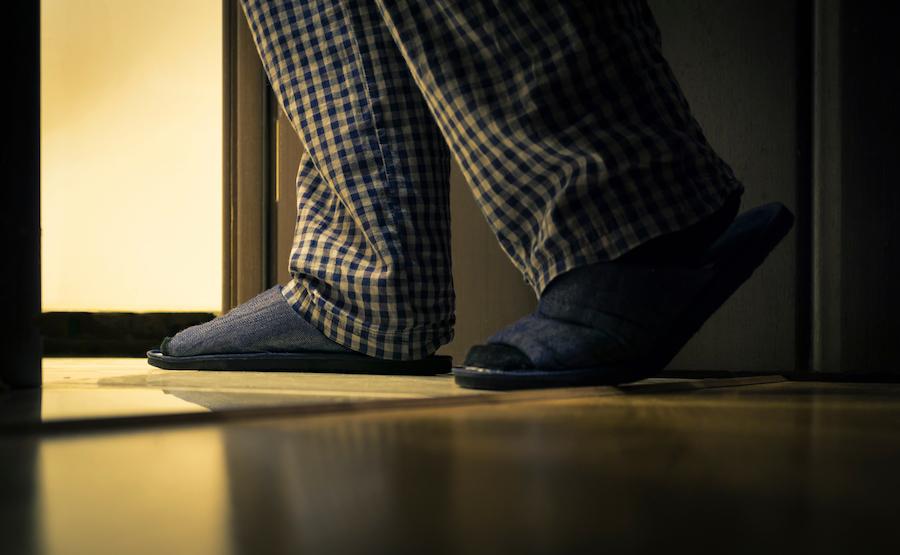Is your man having trouble sleeping and waking up often at night? Is he keeping you up because he needs to pee several times a night? You’re not alone. We know that doesn’t help much, but perhaps some of the following tips will.
First, however, let’s discuss what’s going on with him.
Let’s Explore Potential Reasons?
Does any of this sound familiar? Your partner gets up several times a night to urinate and wakes you up in the process. But it’s just not at night that he has to go more often. Does he excuse himself from dinners or watching movies to use the restroom, has he started looking for public restrooms when you are out, or has he started preferring to stay in? The need to urinate is disrupting both your quality and intimate time together.
Here’s what may be happening. As men get older, a gland called the prostate can become enlarged. This condition, known as benign prostatic hyperplasia (BPH) affects 50 percent of men between the ages of 50 ad 60 and 90 percent of those older than 80, according to the Urology Foundation. Among its numerous symptoms are urinary urgency, dribbling, the need to pee several times a night, painful urination, and a weak stream. These symptoms are similar to those of prostate cancer, so be sure to get a proper diagnosis of BPH before starting any treatment program.





